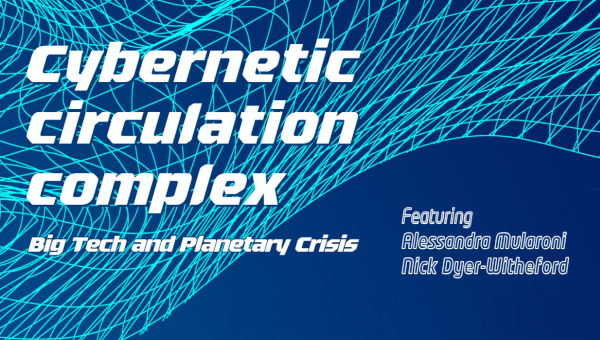A key lesson of the Vietnamese revolutionary struggle - to break free from colonialism of the French and then the imperialist military machine of the U.S. - is important in regards to the kinds of struggles that by necessity have to be carried out in the 'long-term' perspective.
In his article, People's War People's Army, which was written on the occasion of the 15th anniversary of the Viet Nam People's Army (December 22, 1959), Vo Nguyen Giap reflected on how the outlook of a long-term struggle affected the Vietnamese revolutionaries:
"This [Vietnamese] strategy must be the strategy of a long-term war. It does not mean that all revolutionary wars, all people's wars, must necessarily be long term ... But the war of liberation of the Vietnamese people started in quite different conditions," (emphasis in original).What was the distinctive factor that made this a long-term struggle by necessity? Giap explains, "We had to deal with a much stronger enemy. It was patent that this balance of forces took away from us the possibility of giving decisive battles from the opening of hostilities, and of checking the aggression from the first landing operations on our soil. In a word, it was impossible for us to defeat the enemy swiftly."
He explains further, "It was only by a long and hard resistance that we could wear out the enemy forces little by little while strengthening ours, progressively turn the balance of forces in our favor and finally win victory. We did not have any other way."
This principle derived from the particular conditions of the Vietnamese struggle, in fact has a universal lesson for the left in all locations of the world today, if we abstract from the revolutionary 'war' (with a heavy military emphasis) to a more general 'struggle', which has many dimensions.
I believe we ALL face long-term struggles, but by long-term we are not talking five hundred years. No. I'm talking within a lifetime. Ho Chi Minh accomplished this. Sure, he died in 1969, but that's just a few years away from total liberation. Not bad at all! The point is therefore that we are not fighting for some abstract idea to be fulfilled in some distant, hopeful future; something which is almost on par with the promises made of what heaven, or more likely hell holds for us, after our death.
Long-term thinking involves at least two key sub-sets. One subset consists of the long-term objectives of our side, the other subset the important strategic objectives of the enemy. The considerations in regards to the latter, in turn divide into two categories: how to check (where possible) the objectives of the enemy from the start, and second, once they gain the initiative (and, for example, start an illegal war of aggression regardless of internal and world opinion), how to keep the long-term pressure on, while preparing for their hopeful defeat.
Let's look at a very small example. As was reported in the Viet Nam News, the clearing of all the cluster bombs, these instruments of death and destruction left behind by the Americans, will take more than 400 years and billions of dollars. If it were just and justified for Germany to pay backbreaking reparations to the victors in WWI, then it should sure as hell have been a requirement at the end of the American aggression in Vietnam. The American Left clearly failed to go the long distance on this particular issue.
But, it is never too late to learn. At this very moment, the American government is carpeting vast areas of Iraq and Afghanistan with uranium-enriched munitions. Any leftist political strategic thinking and platform-writing MUST include a plank for fighting for reparations for the people of Iraq. Also included in our demands must be technical and medical help in the cleanup of the uranium mess in Iraq and Afghanistan. As well, the Iraqis and the Afghans must have a right to medical treatment, for free, for as long as they remain afflicted with the after-effects of unranium contamination of their air, water and soil. Which, by the way, will be at least thousands of years long.
I am sure some of you are laughing so hard that you're almost falling off your seat. Gather yourselves!
That's one of your problems, you see, if you're laughing. Your expectations have been lowered so low that you will submit to anything, as long as they are not sticking it to you sexually in public at high noon at a busy crossroads in town.
Also included in our demands must be the recognition that the so-called Iraq War Disease/Syndrome's cause is the use of uranium-enriched munitions, and due medical care shall be provided all American veterans coming back from Iraq and Afghanistan, in perpetuity, meaning their sons and daughters, as well as spouse must also be included in this demand.
This is a long-term view of only one example of what a complete platform would consist of. I believe that most of our demands are long-term, and that we should be thinking and planning our actions with such views. We should not abandon any field of engagement, any 'issue, once the other side seems to retreat from any front, any 'issue' (for example, once Obama declares some phony 'withdrawal' from Iraq); we should not back away from any political front.
The other side never 'withdraws' from anything. They don't take holidays either on any front. Neither should we let them have any. By not letting them have any holidays, by not letting them dictate all the terms on all fronts, we force them to make errors, to slip, and on good days we force them to have to deal with our terms, and thus we change the conditions to our favor little by little, but never ceasing to push things just a little bit more to our favor.
In the long-term view of a revolutionary struggle, every front is (at least potentially) a battle of attrition.







No comments:
Post a Comment